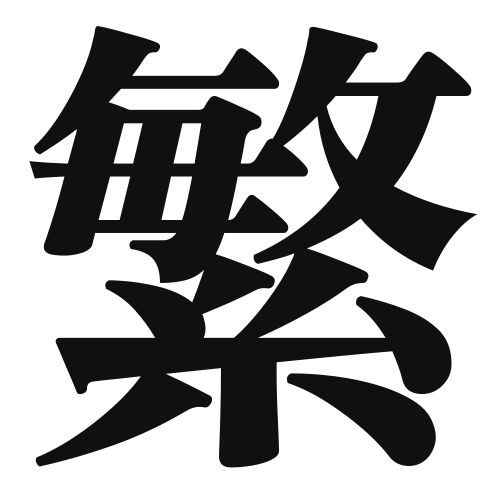1. Overview of Meaning
The kanji “繁” (han) means “prosperous,” “luxuriant,” or “abundant.” It often conveys the idea of flourishing growth or a thriving state, particularly in relation to nature or life.
2. Formation and Radical
Formation of the Kanji: The kanji “繁” is a compound character (会意文字) that combines elements to convey its meaning. It consists of the radical for “grass” (艹) at the top, which relates to plants, and the character “繁” itself, which suggests abundance.
Radical: The radical of “繁” is 艹 (grass), indicating its connection to vegetation and growth.
3. Examples of Usage
Common Words and Phrases: Some frequently used words that include “繁” are:
- 繁栄 (はんえい, han’ei) – prosperity
- 繁忙 (はんぼう, hanbō) – busyness
Example Sentences in Daily Conversation:
- この地域は繁栄しています。 (このちいきははんえいしています。) – This area is prosperous.
- 繁忙な時期が続いています。 (はんぼうなじきがつづいています。) – We are in a busy period.
4. Synonyms and Antonyms
Similar Kanji: A kanji with a similar meaning is “豊” (yutaka), which also means “abundant” but often emphasizes richness or wealth.
Opposite Kanji: An antonym of “繁” is “衰” (sui), which means “decline” or “deterioration,” indicating a lack of growth or prosperity.
5. Cultural and Historical Background
Connection to Japanese Culture: The concept of “繁” is significant in Japanese culture, often associated with nature’s cycles and the importance of growth in agriculture and life.
Proverbs and Idioms: One common saying is “繁栄は努力から” (はんえいはどりょくから), which translates to “Prosperity comes from effort,” highlighting the value placed on hard work in achieving abundance.
